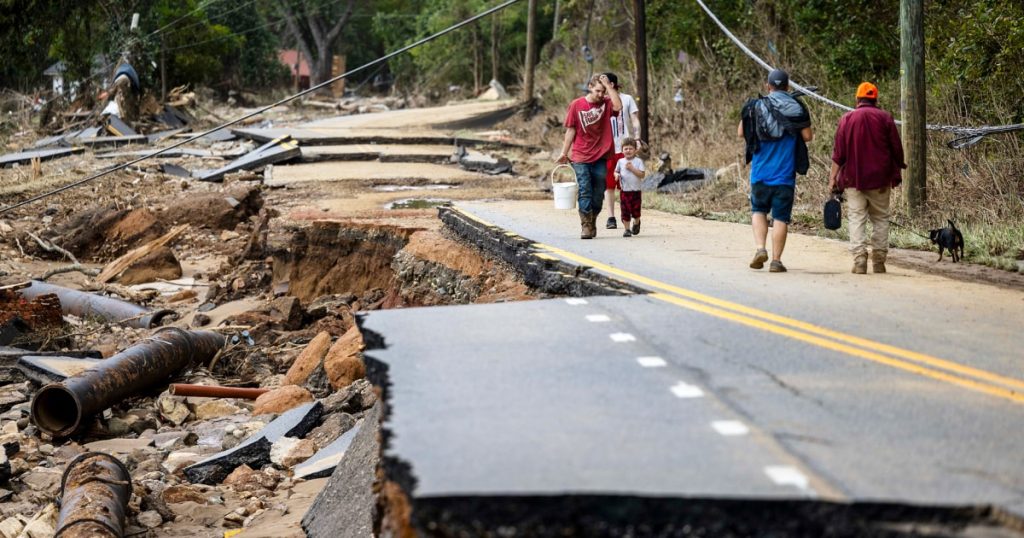Residents in western North Carolina, including Asheville, have criticized the slow response from city and county officials in providing supplies and assistance following the devastation caused by Hurricane Helene. Governor Cooper acknowledged the challenges faced by first responders due to flooding and rising rivers, which have hindered their ability to reach some communities. Buncombe County Manager Avril Pinder expressed frustration with the inadequate supply of water and called for a more efficient response from state partners in fulfilling requests through FEMA.
Homeland security adviser Liz Sherwood-Randall highlighted FEMA’s efforts to pre-position supplies in anticipation of the storm in the Big Bend, Florida, area, which helped save lives. However, the focus has now shifted to western North Carolina, where the impact of Hurricane Helene has been most severe. Rep. Chuck Edwards raised concerns about the whereabouts of 400 pallets of food and water from FEMA intended for hurricane relief, stating that counties such as Haywood and McDowell are in desperate need of water. Despite FEMA sending supplies, state officials have been unable to track their distribution, leading to confusion and delays in getting resources to those in need.
FEMA spokesperson Jaclyn Rothenberg admitted that staffing has been a challenge due to the agency’s involvement in multiple disaster response operations, prompting the call for a “surge capacity force” to address the increased demand for resources. Criswell emphasized the importance of collaboration in ensuring that supplies reach all communities affected by the hurricane, urging for a collective effort to identify areas that have not received assistance yet. Efforts are being made to push water and resources to those in need, but the coordination between state, local, and federal agencies remains a critical aspect in delivering aid effectively.
Despite Hurricane Helene hitting Florida as a Category 4 storm, survivors in North Carolina are struggling to access basic necessities such as food and clean water, prompting them to move between shelters in search of essential supplies. The delay in distributing resources has left many residents feeling neglected and vulnerable, raising concerns about the effectiveness of the disaster response efforts in the aftermath of the hurricane. State emergency officials are urged to improve communication and coordination to ensure that aid reaches all impacted communities in a timely and efficient manner, preventing further suffering among those affected by the storm.
The lack of transparency and clarity regarding the distribution of FEMA supplies in western North Carolina has led to confusion and frustration among residents and officials alike. Calls for a more coordinated and proactive approach in managing the disaster response have been made to address the immediate needs of those affected by Hurricane Helene. State and federal agencies must work together to improve communication channels and streamline the delivery of essential resources to ensure that no community is left without support in the wake of a natural disaster.
Governor Cooper’s reassurance that efforts are being made tirelessly to provide assistance to residents in need of food, water, and aid highlights the commitment of local and state officials to address the aftermath of Hurricane Helene. Despite challenges posed by the severity of the storm and logistical obstacles, a collaborative approach between government agencies, relief organizations, and community members is crucial in ensuring a swift and effective response to the crisis. The ongoing efforts to mitigate the impact of the disaster and provide relief to those affected underscore the resilience and solidarity of North Carolina residents in times of adversity.


